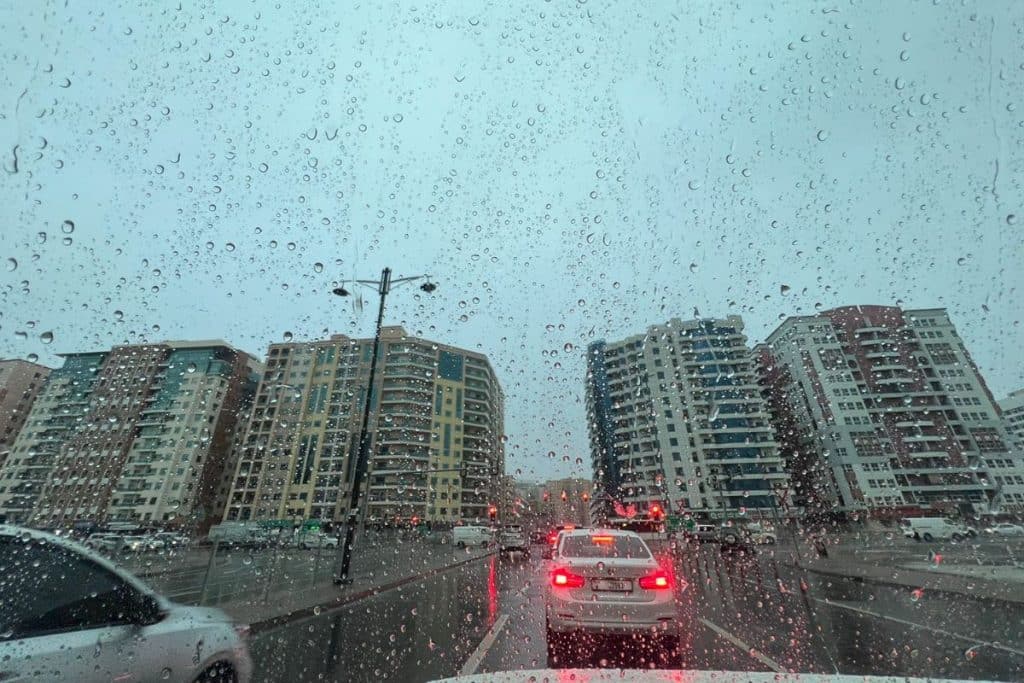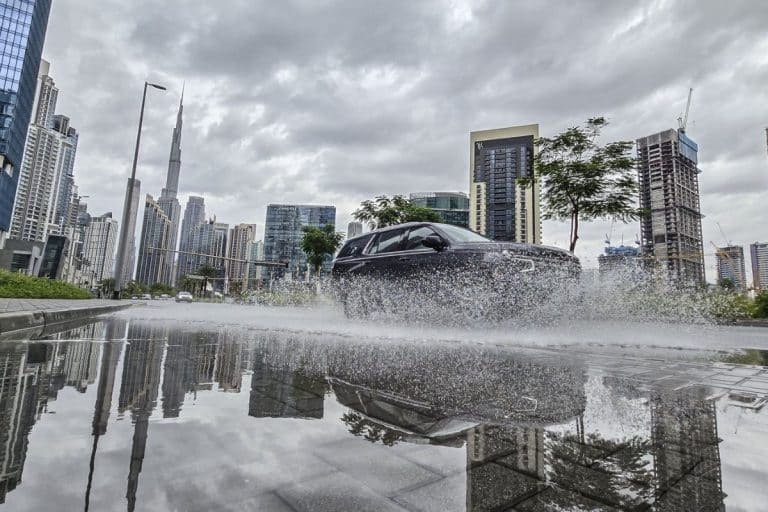The heavy rainfall and flooding that inundated parts of the UAE last week has left many residents with water-logged and abandoned vehicles, setting the stage for an expected “influx” of auto insurance claims according to industry experts.
As torrential downpours submerged roads and underpasses across Dubai and other emirates, drivers were forced to abandon their cars in rising waters. Now, those owners face complex challenges in retrieving those vehicles and initiating claims processes with their insurers for any flood damages.
“We have very few [claims] so far but we are expecting an influx this week,” said Raphael Daniel, CISO and Auto Insurance Manager at Abu Dhabi-based Secure Insurance Brokers LLC.
“Insurers undoubtedly have been receiving a very large volume of water damage claims alongside other type of claims. Many insurers have commented that the amount of payout they are expected to fullfil have been affecting their loss ratio,” said Ashmy Arackal, Head of Claims at InsuranceMarket.ae, highlighting the industry is already feeling the pinch.
“Some insurers have also resorted to decline claims if the vehicle was driven through water-affected areas despite warnings.”
According to Daniel, car owners can “retrieve their vehicles if they are in good working condition.”
“They can call a recovery vehicle either at their expense or at their insurer’s expense if their existing policy allows it.”

For owners unable to immediately recover their abandoned cars, consequences could follow, he told Arabian Business. “As for repercussions, if the vehicle is still abandoned after the roads are clear, intentionally or not, the government will impound the vehicle and fine the owner.”
Arackal outlined options for retrieval as well, noting that “vehicle owners can turn to their insurance policy benefit of Roadside Assistance that can help them tow the vehicle for free to a garage or approved repairer nominated by their insurer.”
Alternatively, she suggested vehicle owners contact the police who can put them in touch with private recovery providers if needed, which can cost up to AED500 or more depending on the type of recovery and distance involved.
Determining coverage
Once vehicles are recovered, assessing them for flood damage covered by insurance can be a detailed process according to the experts. Daniel explained that UAE auto policies distinguish between comprehensive coverage and basic third-party liability policies.
“Third Party Liability only policies will only cover Third Party Property damage whereas for Comprehensive Policies will cover the insured against Loss, Damage and Third Party Liability,” Daniel said.
“All Natural Calamities except for hail storms are covered by the Unified Motor policy implemented by the Insurance Authority/CBUAE,” he added.

“Insurance companies use the repair estimate and photos submitted by their nominated garages or agencies to assess the extent of damage. Depending on the repair cost, insurers may also appoint an external loss adjuster to further inspect the vehicle and investigate the loss and its circumstances before deciding the outcome of the claim,” said Arackal.
During these investigations, “policyholders may be requested to fill out a claim form to explain the circumstances of the water damage and may also be asked to share spot photos to identify the level of water and conditions the vehicle was subjected to when the loss happened,” she added.
Rising risks
With the UAE experiencing more frequent extreme rainfall events likely linked to climate change, insurance providers are being forced to reevaluate their underwriting risks and pricing models.
“As you know, the country has been experiencing more frequent rains this year. To minimise loss, concerned authorities have been frequently sharing guidelines on driving in the rain and also have urged the public to take precautions,” Arackal said.
Looking ahead, both experts stressed the importance of driver preparedness and comprehensive coverage to protect against future flood events.
“I would highly urge residents not to try starting a car that is already submerged in water as this can aggravate the damage and the outcome of the claim,” Arackal cautioned.
“I would also advise residents to keep a lookout for weather warnings issued by relevant authorities to identify if any rains are expected soon. Based on this, I would urge residents to opt for work from home on such days so as to avoid driving at all.”
Daniel recommended owners “simply opt for comprehensive insurance policies” to be properly covered against natural disasters like flooding.
While the recent deluge has strained the UAE insurance industry, Arackal expressed confidence in its ability to adjust to increased severe weather risks.
“Events like flooding can have significant consequences for UAE insurers, leading to a surge in property and casualty claims,” Arackal said.
“The industry, regulated for stability, typically maintains reserves and reinsurance to fulfill obligations. However, increased severe weather risks prompt insurers to reassess models, underwriting, and pricing strategies. Collaboration with government agencies is crucial for effective disaster management. While challenges exist, UAE insurers are generally equipped to adapt to the evolving risk landscape through adjustments and collaborative efforts.”
This comes as UAE weather authorities forecast more rain in parts of the country from Monday through to Friday. There is a chance of scattered light to moderate showers over some northern and eastern areas at night and into Tuesday morning, and a rise in temperatures is expected, according to the National Centre for Meteorology (NCM).









